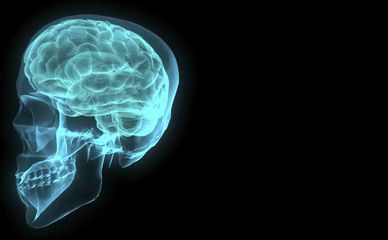Barts Health consultant supports study linking Covid-19 to an increase in delirium, rare brain inflammation and stroke

Barts Health Consultant Paediatric Neurologist, Dr Michael Yoong, worked on a study led by UCL which has identified neurological complications of Covid-19, which include delirium, brain inflammation, stroke and nerve damage.
Published in the journal Brain, the research team identified one rare and sometimes fatal inflammatory condition, known as ADEM, which appears to be increasing in prevalence due to the pandemic.
Some patients in the study did not experience severe respiratory symptoms, and the neurological disorder was the first and main presentation of Covid-19.
The study identified a higher than expected number of people with neurological conditions such as brain inflammation, which did not always correlate with the severity of respiratory symptoms. They advised that clinicians need to be aware of possible neurological effects, as early diagnosis can improve patient outcomes. People recovering from the virus should seek professional health advice if they experience neurological symptoms.
The study provides a detailed account of neurological symptoms of 43 people (aged 16-85) treated at the National Hospital for Neurology and Neurosurgery, UCLH, who had either confirmed or suspected Covid-19.
The researchers identified 10 cases of transient encephalopathies (temporary brain dysfunction) with delirium, which corresponds with other studies finding evidence of delirium with agitation. There were also 12 cases of brain inflammation, eight cases of strokes, and eight others with nerve damage, mainly Guillain-Barré syndrome (which usually occurs after a respiratory or gastrointestinal infection).
Most (nine out of 12 cases) of those with brain inflammation conditions were diagnosed with acute disseminated encephalomyelitis (ADEM). ADEM is rare and typically seen in children and can be triggered by viral infections: the team in London normally sees about one adult patient with ADEM per month, but that increased to at least one per week during the study period, which the researchers say is a concerning increase.
The virus causing Covid-19, SARS-CoV-2, was not detected in the cerebrospinal brain fluid of any of the patients tested, suggesting the virus did not directly attack the brain to cause the neurological illness. Further research is needed to identify why patients were developing these complications.
In some patients, the researchers found evidence that the brain inflammation was likely caused by an immune response to the disease, suggesting that some neurological complications of Covid-19 might come from the immune response rather than the virus itself.
Dr Michael Yoong said: “I am very proud to have been able to contribute to this important study, which provides a baseline description of the extent and ways in which Covid-19 can affect the brain and nervous system to help guide clinicians and researchers around the world. It is a testament to the value of the NHS clinical and scientific networks that this work was able to be produced in such a timely and comprehensive manner.”
The researchers were supported by the National Institute for Health Research UCL/UCLH Biomedical Research Centre, Medical Research Council, Alzheimer's Association, and the UK Dementia Research Institute.
